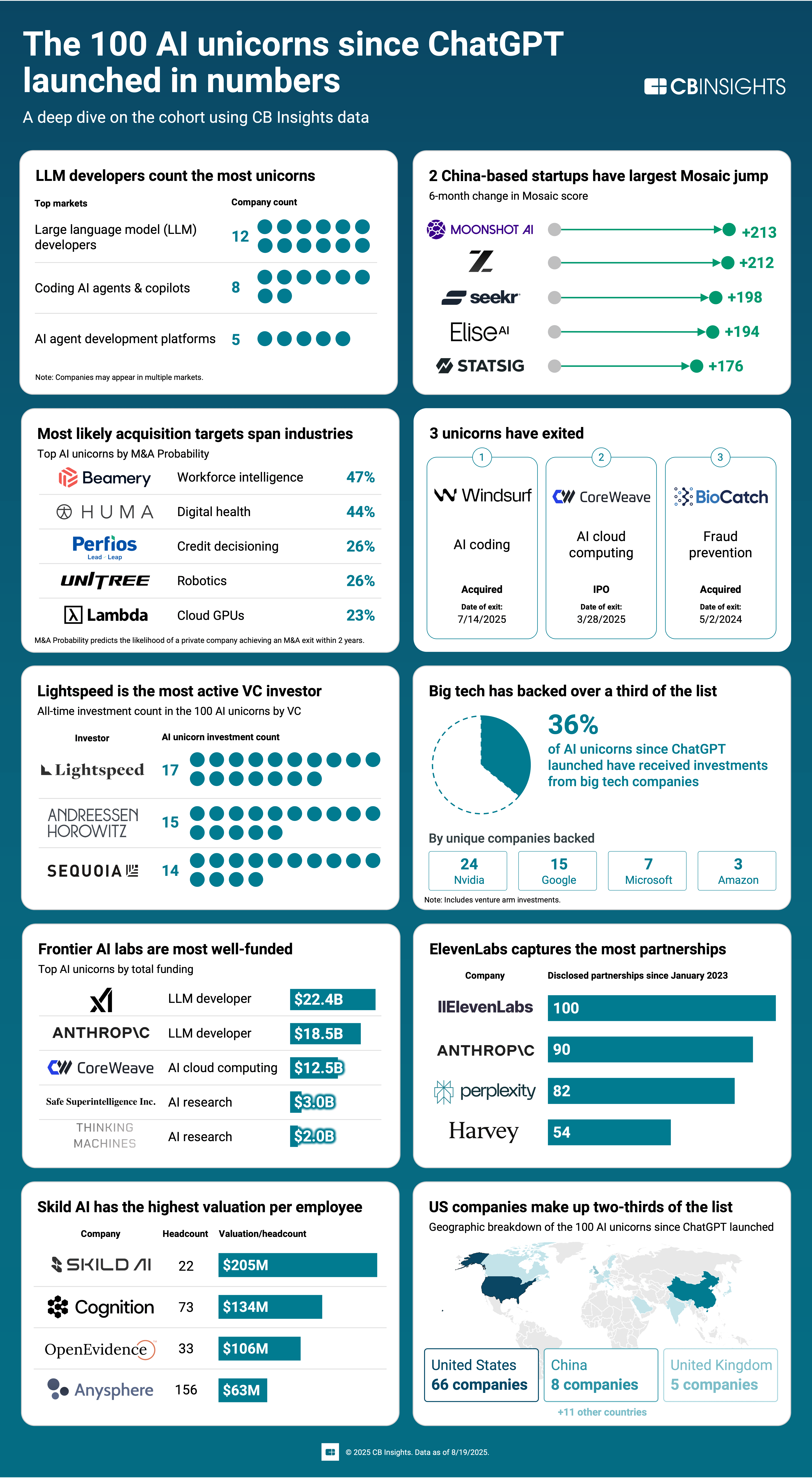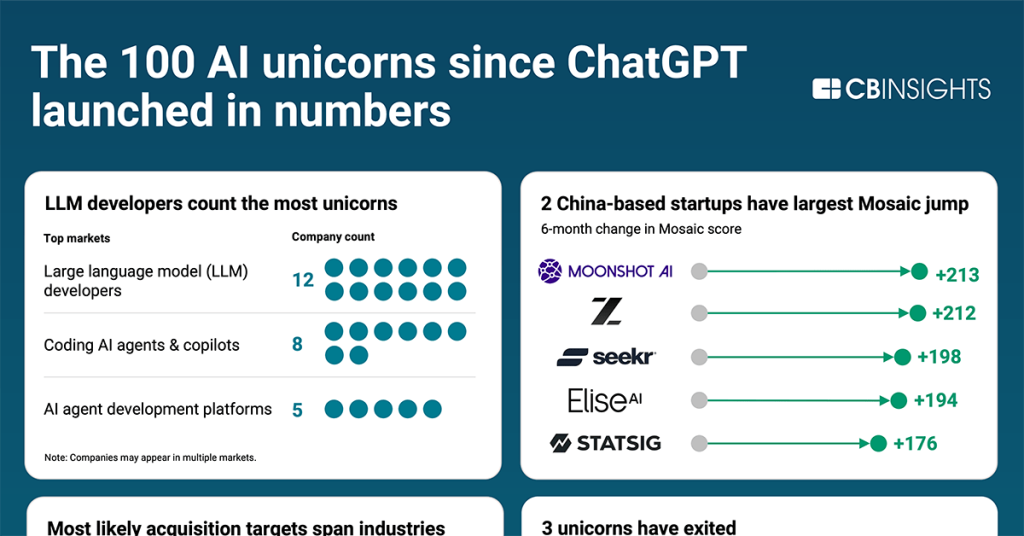One hundred AI companies valued at $1B+ have emerged since November 2022, when the launch of OpenAI’s ChatGPT brought generative AI to the masses.
The tech’s potential has reshaped the innovation landscape — with new AI unicorns now outnumbering non-AI unicorn births.
Below, we analyzed the 100 unicorns to understand how the cohort stacks up, top exits, leading investors, and more.
Download the full Book of Scouting Reports for in-depth analysis on the 100 AI unicorns. Combining CB Insights’ proprietary data and AI, scouting reports provide insight into each company’s:
Key takeaways (including opportunities and threats)
Valuation
Headcount
Outlook (Mosaic score and Commercial Maturity)

Key takeaways
Nvidia is building its AI ecosystem through strategic investments: Nvidia has backed 24 of the 100 AI unicorns (nearly 1 in 4), more than any other investor as it secures demand for its chips. Big tech overall has invested in over one-third of these unicorns, with Google (15), Microsoft (7), and Amazon (3) also placing strategic bets on their future customers and partners.
LLM developers and AI agents dominate the unicorn landscape: Large language model development leads with 12 unicorns, while AI agent development platforms account for 5. These foundational infrastructure categories provide core building blocks, while coding AI agents & copilots (8 unicorns) represent one of the most successful application layers built on top of this foundation. Note: categories are not mutually exclusive.
Robotics emerges as an AI frontier: Physical AI is gaining momentum with 3 robot foundation model developers (Skild AI, Physical Intelligence, World Labs) and 3 humanoid robot developers (Figure, Unitree Robotics, Zhiyuan Robot) among the robotics companies achieving unicorn status. This signals strong investor confidence in AI’s transition from digital to physical applications.
If you aren’t already a client, sign
up for a free trial to learn more about our platform.

